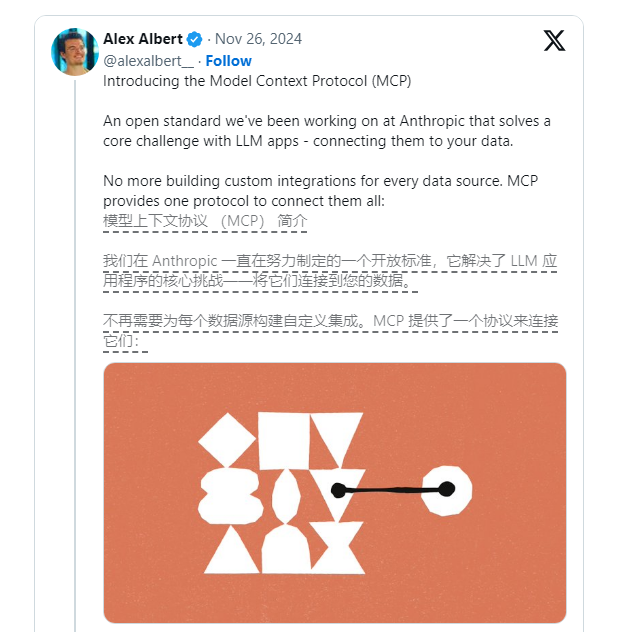On November 25, news emerged that the artificial intelligence company Anthropic has launched a new open-source standard called the Model Context Protocol (MCP). This protocol aims to enhance the quality and relevance of AI assistants' responses to queries by connecting them with data sources such as business tools and software. The release of MCP means that AI assistants can directly extract information from various data sources when handling tasks, thereby avoiding the issue of "information silos."
In a blog post, Anthropic stated that while AI assistants have made rapid progress in reasoning and quality, most models are still limited by isolation from data and cannot directly access stored information. This necessitates separate custom implementations for each data source, making it difficult to scale interconnected systems. MCP aims to address this issue through a protocol that allows developers to establish bidirectional connections between AI-driven applications (such as chatbots) and data sources.

The MCP protocol allows developers to share data through an "MCP server," build "MCP clients" (such as applications and workflows), and access these data sources via commands. Anthropic claims that developers can leverage this standard protocol for building without having to maintain separate connectors for each data source, thus making the ecosystem more interconnected.
Currently, companies including Block and Apollo have integrated MCP into their systems, while development tool companies like Replit, Codeium, and Sourcegraph are adding MCP support to their platforms. Anthropic also stated that subscribers of the Claude Enterprise plan can connect the Claude chatbot to their internal systems via the MCP server. Furthermore, Anthropic has shared pre-built MCP servers for enterprise systems such as Google Drive, Slack, and GitHub, and plans to release a toolkit to help organizations deploy production-ready MCP servers across their entire organization.
Although MCP theoretically has broad application prospects, whether it will gain widespread support remains uncertain, especially as competitors like OpenAI are also introducing similar features. Recently, OpenAI introduced a data connection feature for its ChatGPT platform, allowing AI to read code in coding-centric applications, which is similar to the use cases of MCP. However, OpenAI's approach is not open-source, but rather implemented through close collaboration with partners.
Currently, it remains to be seen whether MCP can enhance AI assistants' performance in tasks as claimed by Anthropic.










